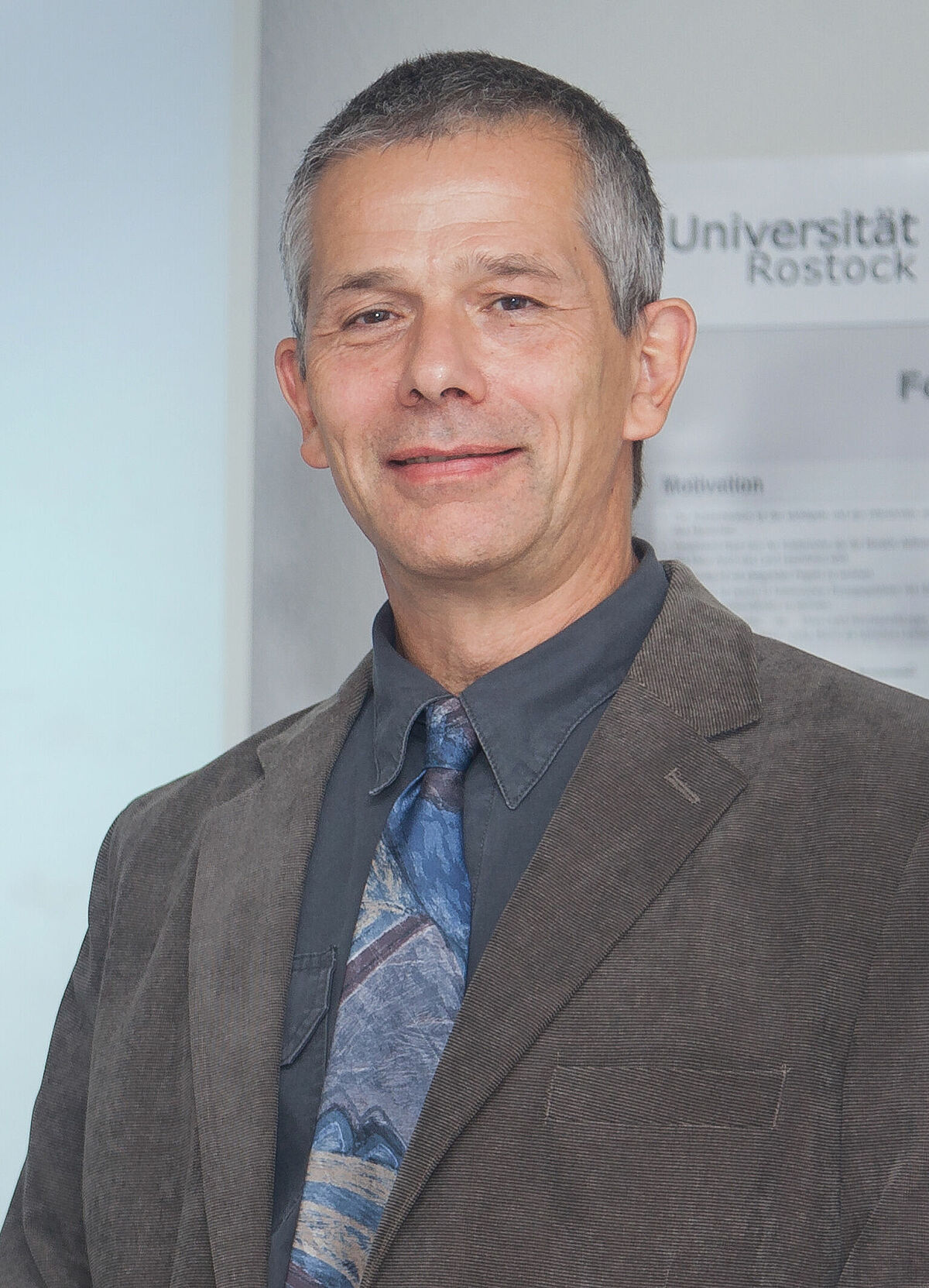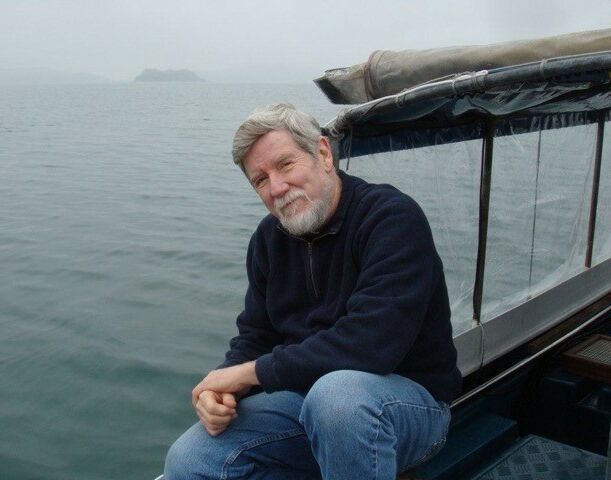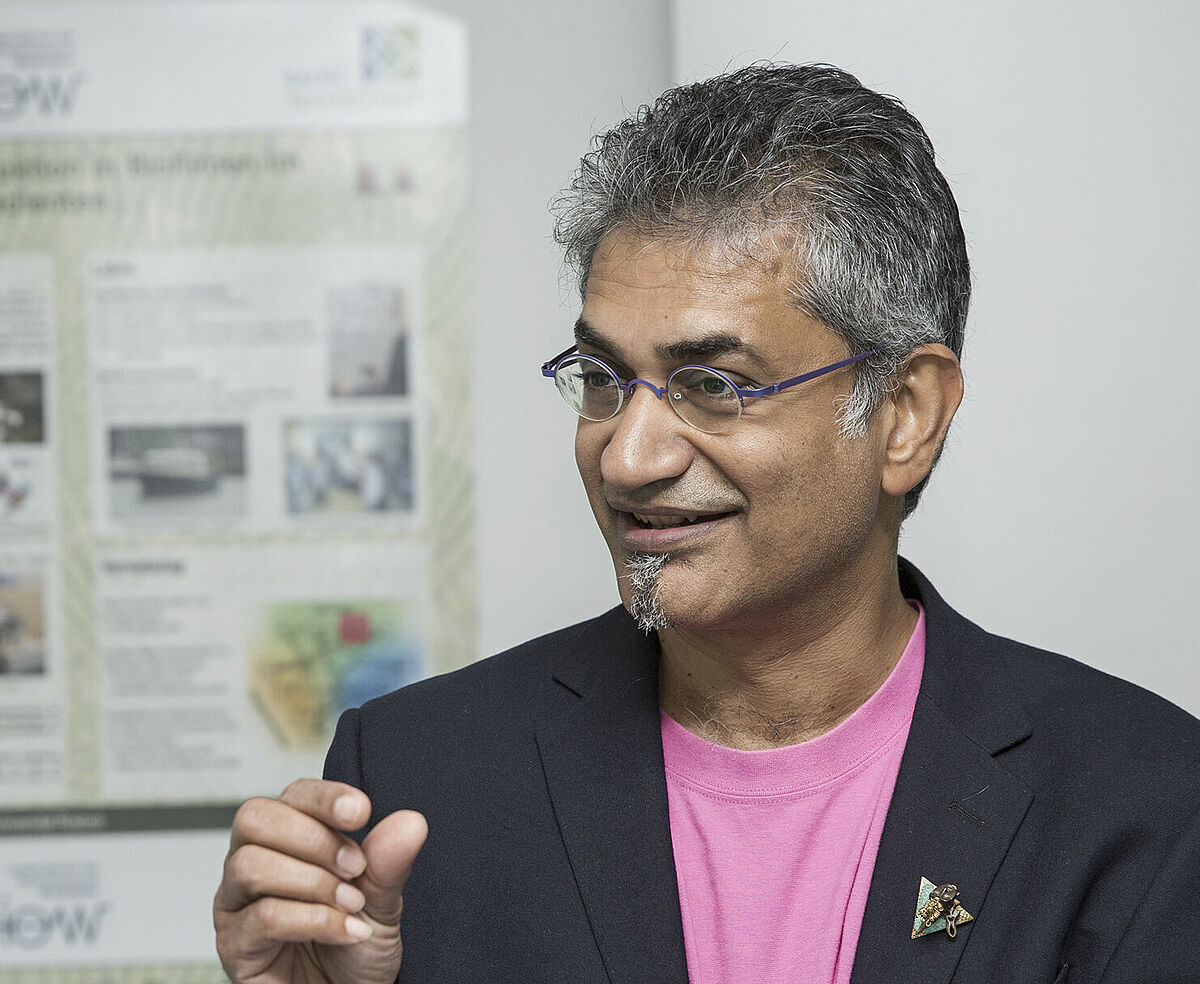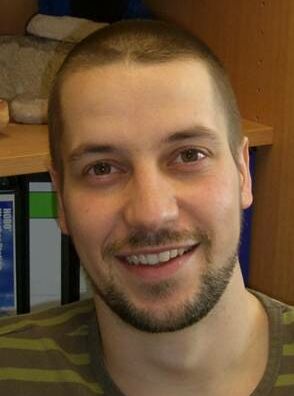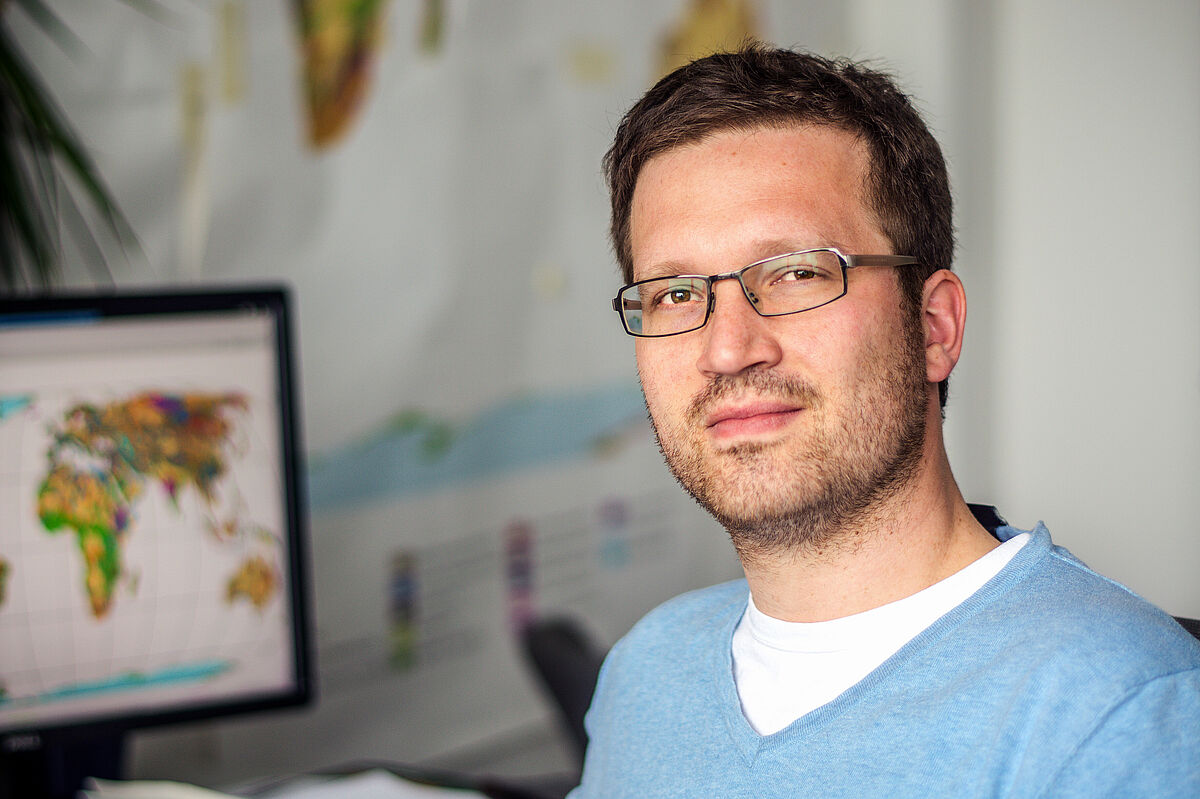Mercator Fellows
Fereidoun Rezanezhad (Canada), Markus Huettel (USA), Willard S. Moore (USA) and Ajit Subramaniam (USA) join us as Mercator Fellows. Ulf Mallast (DE) and Nils Moosdorf (DE) join us as Fellows.
Annualy until the end of 2018, they will support Baltic TRANSCOAST Research Training Group (GRK 2000, funded by DFG) as Mercator Fellows with their expertise for longer periods of time.
Assistant Professor Fereidoun Rezanezhad, University of Waterloo, Canada
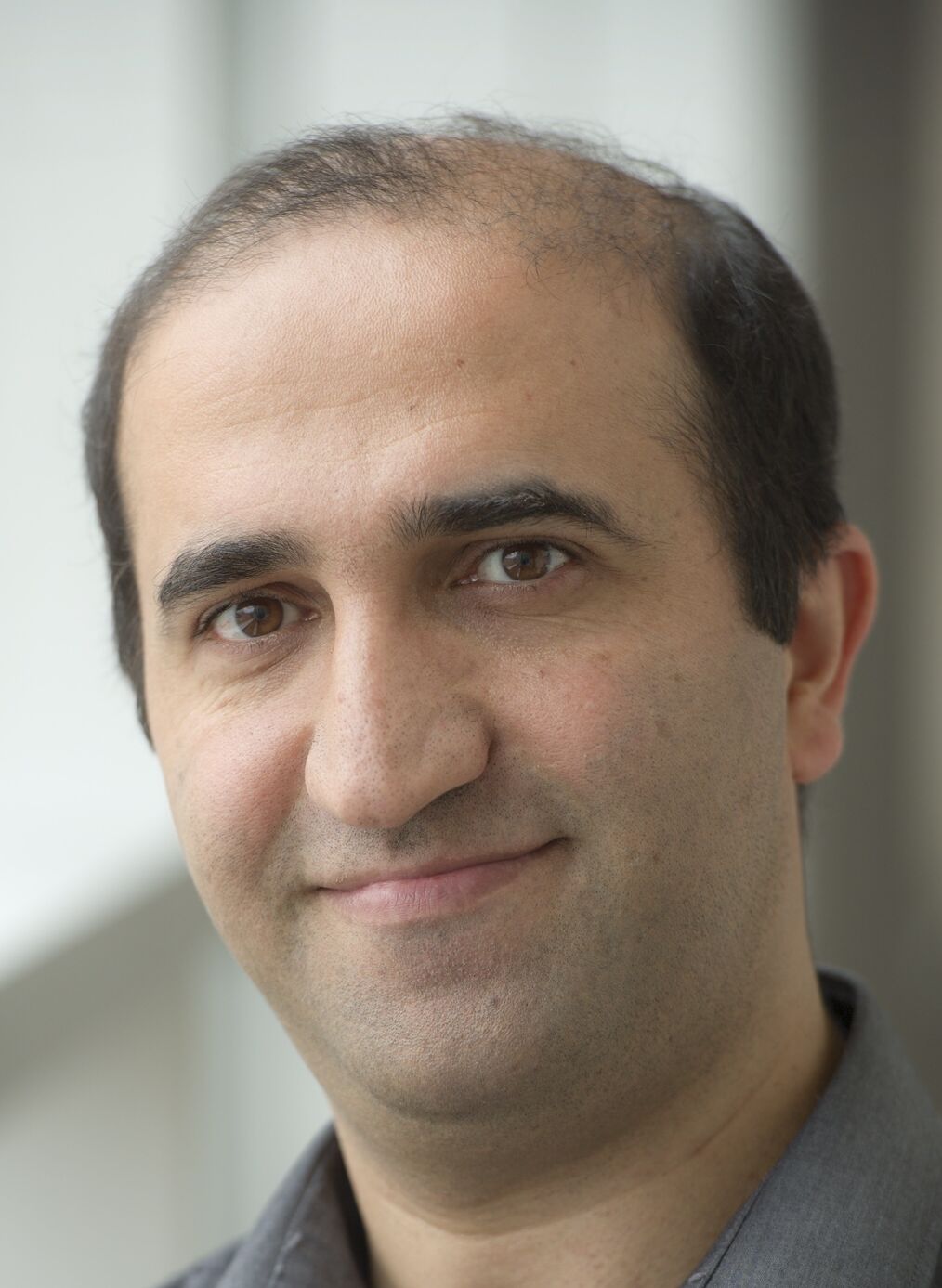
Soil Biochemistry and Hydrology
University of Waterloo
Waterloo, Ontario, Canada N2L 3G1
phone: +1-(0) 519 888- 4567 (home institution)
frezanez(at)uwaterloo.ca
phone: +49-(0)381 498- 3194 (guest institution temporarily)
fereidoun.rezanezhad(at)uni-rostock.de
Dr. Fereidoun Rezanezhad (Assistant Professor, University of Waterloo) has research interests in the hydrological and biogeochemical processes of peatlands and wetlands, and groundwater-surface water interactions. Dr. Rezanezhad has extensive field experience in wetland ecosystems, monitoring water levels, soil and water quality, as well as contaminant, nutrient, and greenhouse gas fluxes. He specializes in novel laboratory and field techniques that quantify subsurface hydrogeochemistry from local to regional scales. As a Mercator Fellow with Baltic TRANSCOAST program, Dr. Rezanezhad is collaborating with PhD students to help on understanding the physical and biogeochemical processes at the land-sea interface, both in the marine and the terrestrial part of the coast.
Period
06-07.2016 (Fellow Baltic TRANSCOAST)
08-09.2016 (Fellow Baltic TRANSCOAST)
04-05.2017 (Fellow Baltic TRANSCOAST)
10.2017 (Fellow Baltic TRANSCOAST)
Project publications Baltic TRANSCOAST
Professor Markus H. Huettel, Florida State University, USA
Biological Oceanography
Earth, Ocean, & Atmospheric Science; College of Arts and Sciences
Rogers Building - OSB 0515
Florida State University,
Tallahassee, Florida 32306- 4320, USA
phone: +1- (0) 850 645-1394
Dr. Markus Huettel (Ph.,D., University of Kiel, 1988, Professor, Florida State University) has research interests in the ecology of coastal and shelf environments with emphasis on processes in the sediments and at the sediment-water interface. In the past years, his lab group (Benthic Ecology) has investigated sediment-water exchange processes in the Northern Gulf of Mexico and the consequences of these fluxes for the biological, chemical and physical processes in the seafloor and the overlying water column. As Mercator Fellow with Baltic TRANSCOAST program, Dr. Huettel is collaborating with PhD Students.
Period:
08.2017 (Fellow Baltic TRANSCOAST)
Professor Willard S. Moore, University of South Carolina, USA
Geochemistry and Chemical Oceanography
College of Arts & Sciences
School of the Earth, Ocean and Environment
University of South Carolina, EWS 411
Columbia, SC 29208, USA
phone: +1-(0) 803 777-2262 (home institution)
phone: +49-(0) 381 498-3194 (guest institution temporarily)
willard.moore(at)uni-rostock.de
Dr. Willard S. Moore (Research Professor) research areas: Groundwater Input to the Coastal Ocean, Ocean Circulation and Mixing, Interactions of Sediments and Sea Water at River Mouths. More.
As a Mercator Fellow with Baltic TRANSCOAST program, Dr. Moore is collaborating with PhD students.
Period:
09.2017 (Fellow Baltic TRANSCOAST)
Research Professor Ajit Subramaniam, Columbia University, USA
Biology and Paleo Environment
Lamont-Doherty Earth Observatory
Columbia University - Earth Institute
2 Marine Biology
61 Route 9W - PO Box 1000
Palisades NY 10964-8000 US
phone: +1-(0) 845 365-8641 (home institution)
phone: +49-(0) 381 498-3194 (guest institution temporarily)
ajit.subramaniam(at)uni-rostock.de
Ajit Subramaniam (Lamont Research Professor, Columbia University) is interested in the use of remote sensing, ocean optics, phytoplankton physiology, biological and physical oceanography and geographical information systems to better understand how the marine ecosystem works and can be managed.
Fields of interest: Oceanography, Remote sensing, Bio-Optics, Coastal Water Quality
Ajit Subramaniam is a microbial oceanographer with expertise in biogeochemical cycles, remote sensing, bio-optics, and phytoplankton physiology. He works on understanding the processes that can explain why particular species of phytoplankton grow where they do, the factors that cause such blooms, that lead to their demise, and the consequences of these blooms. He has served as the Program Director for the Marine Microbiology Initiative at the Gordon and Betty Moore Foundation and a program manager in the Biological Oceanography Program at the U.S. National Science Foundation. He has worked for the National Oceanic and Atmospheric Administration Coastal Services Center in Charleston, SC, the University of Maryland in College Park, MD, and the University of Southern California in Los Angeles prior to moving to Lamont Doherty Earth Observatory of Columbia University in New York in 2004 where he is currently a Lamont Research Professor. Ajit earned his Ph.D. in Coastal Oceanography and M.S. in Marine Environmental Science from SUNY, Stony Brook. He has a Bachelors degree in Physics from The American College in India.
As a Mercator Fellow with Baltic TRANSCOAST program, Dr. Ajit Subramaniam is collaborating with PhD students.
Period
09-12.2017 (Fellow Baltic TRANSCOAST)
Dr. Ulf Mallast, Helmholtz Centre for Environmental Research - UFZ, Halle, DE
Helmholtz-Centre for Environmental Research
Department Catchment Hydrology
Theodor-Lieser-Str. 4
06120 Halle/Saale, Germany
phone: +49 (0) 345 558 5210 (home institution)
phone: +49 (0) 381 498 3194 (guest institution temporarily)
Dr. Ulf Mallast has research interests in the field of remote sensing using information from the optical-, thermal and microwave spectrum and various platforms (satellite-, airborne-, UAV-data) to facilitate the investigation of hydro(geo)logical states and processes and associated fields. These include groundwater-surface water interactions (SGD/SWI), subsidence processes (sinkholes), biomass alterations, and soil moisture changes. Common for all is a focus on a spatio-temporal context while the covered spatial scale varies from small scale (<10² m²) to large scale analyses (>1010 m²). As a Mercator Fellow with Baltic TRANSCOAST, Dr. Mallast is collaborating with PhD students to help on understanding the spatio-temporal context of SGD processes at the land-sea interface.
Period:
10-12.2017 (Fellow Baltic TRANSCOAST)
Dr. Nils Moosdorf, Leibnitz Centre for Tropical Marine Research - ZMT, Bremen, DE
Department of Biogeochemistry and Geology
Working Group: WG Submarine Groundwater Discharge
Fahrenheitstr. 6
28359 Bremen, Germany
phone: +49 (0) 421 23800 - 33 (home institution)
nils.moosdorf(at)leibniz-zmt.de
phone: +49 (0) 381 498 3194 (guest institution, temporarily)
Dr. Nils Moosdorf (Junior Research Group Leader) research interests: Global matter cycles, Groundwater / Ocean interaction, Biogeochemistry, Data-driven Geosciences.
The interactions between groundwater and seawater are complex and vary greatly in space and time. These variations impede the transferability of local results to the regional scale and vice versa. However, exactly this upscaling or downscaling is crucial to understand wider implications of local findings or local implications of regional scale concepts. My working group is intentionally stretched across the scales with people working at the global scale, the regional, local and even sub-meter scale. I enjoy to translate between these findings and see this role also as Fellow for the Baltic TRANSCOAST research training group.
As a Fellow, Nils will emphasize the regional scale and help putting local observations in context for the entire Baltic Sea, and discuss all kinds of scaling issues with PhD students.
View website ZMT
View website WG Submarine Groundwater Discharge
Period
10-12.2017 (Fellow Baltic TRANSCOAST)
Objectives
The Mercator Fellow Module (funded by German Research Foundation, DFG) enables us to pursue an intensive and long-term exchange with researchers in Germany and abroad. Fellows will partially be on site but will remain in contact with project participants even after their stay. Intensive and ongoing exchange with researchers from Germany and especially those from abroad add significant value to our research project. It is a way of bringing additional expertise to the project or into the network and increasing its visibility. Fellows are integrated to a greater extent than visiting researchers. They are associated with the project over the long term and at least partially on site at the host institution. They remain in contact with the project network even after their stay. International fellows carry the designation “Mercator Fellows” in recognition of their dedication to the project.

